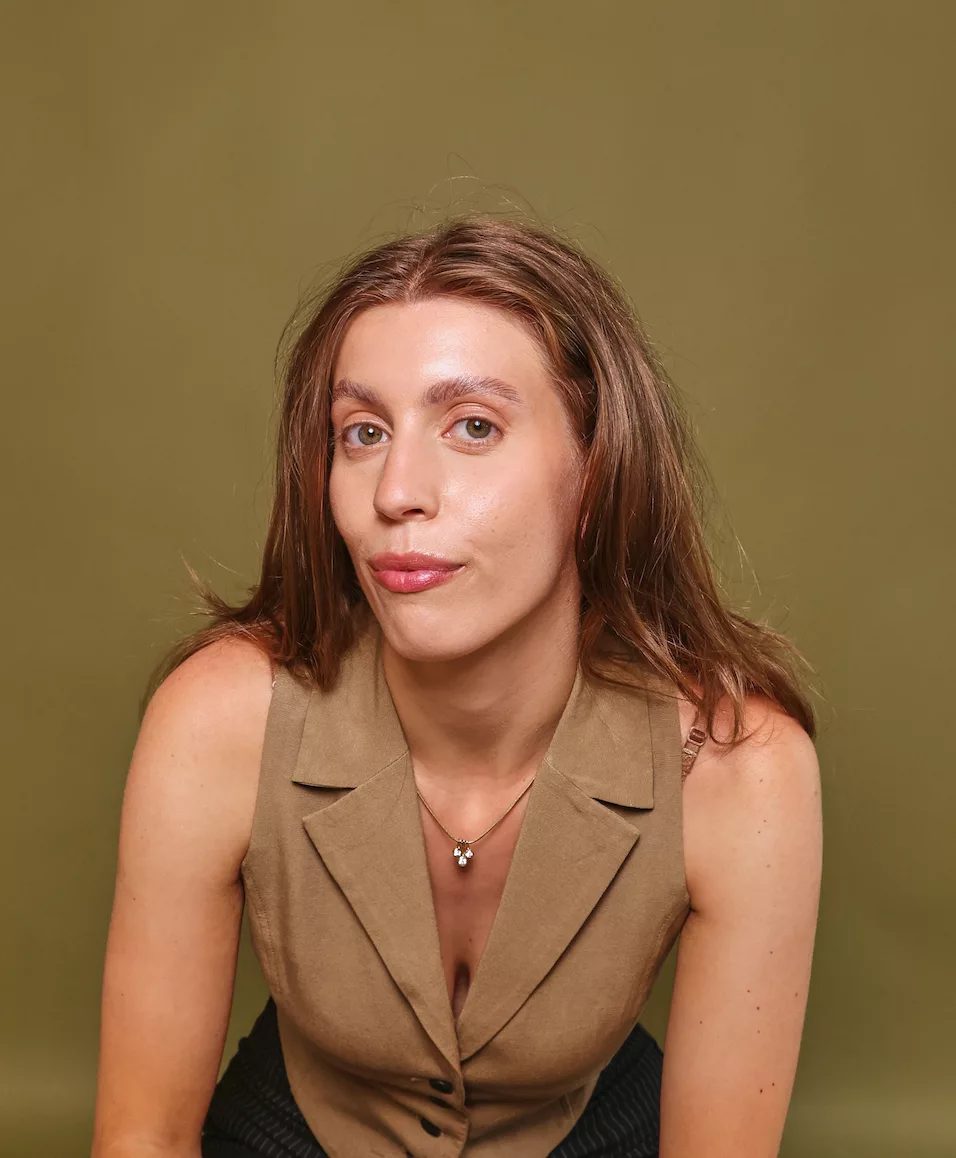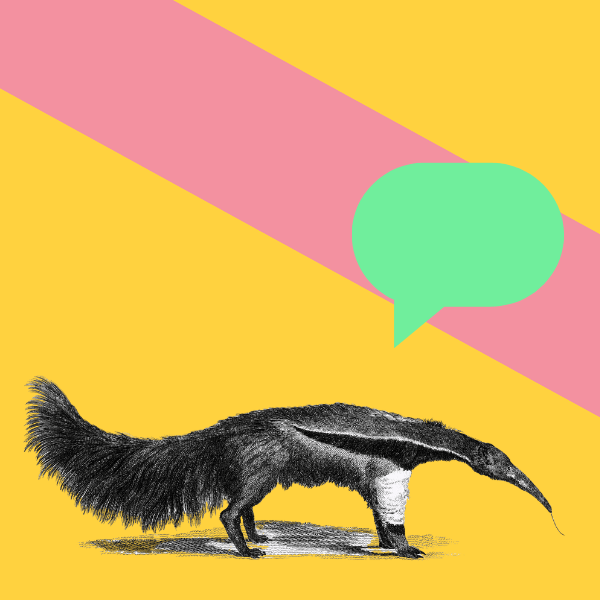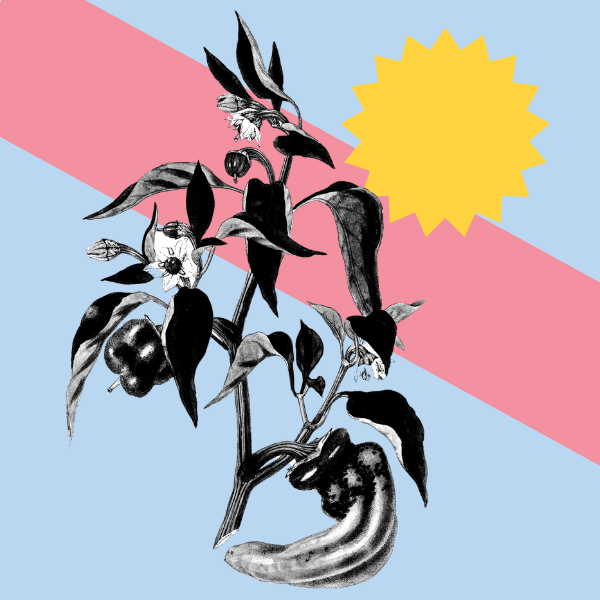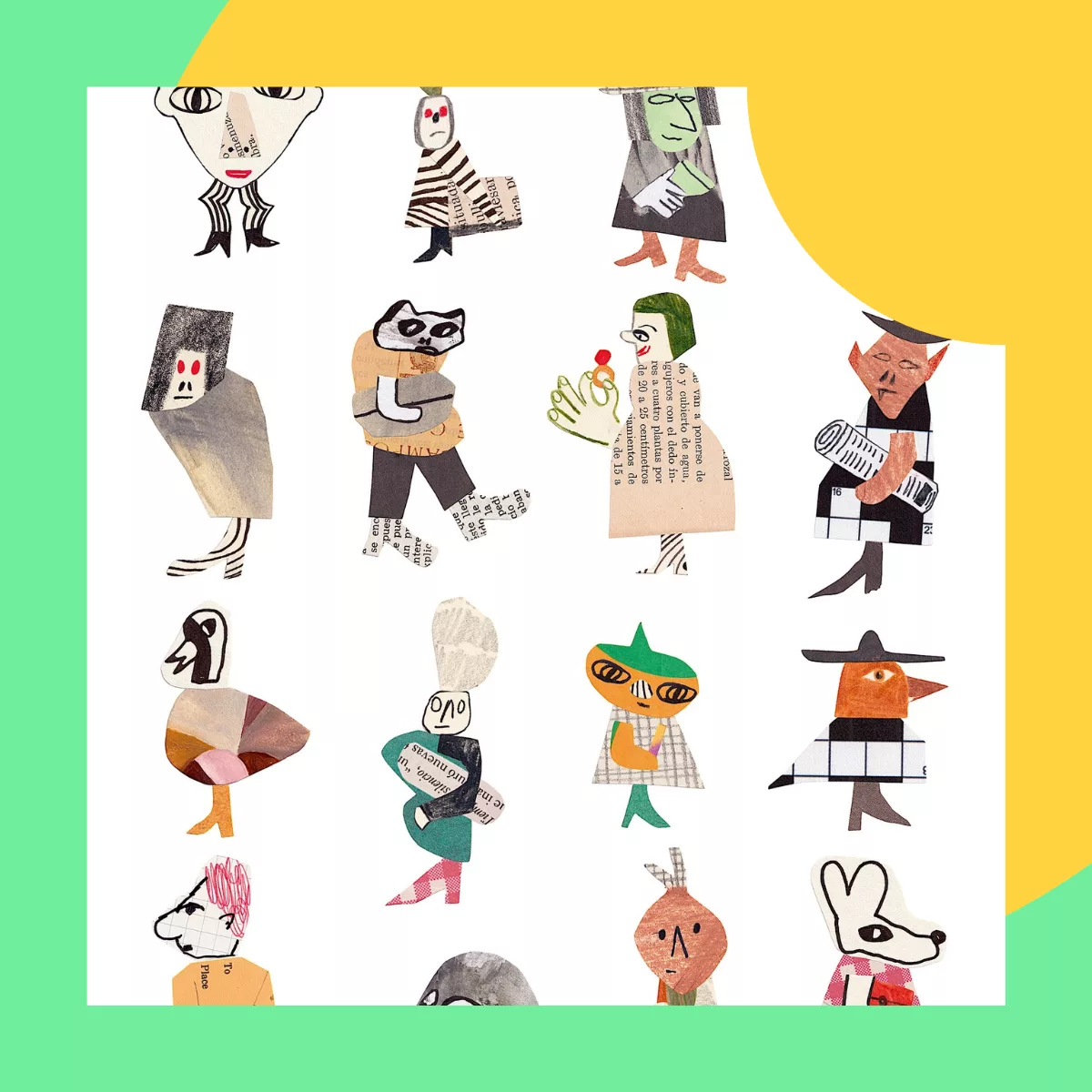University Degrees carries a lot of expectations for creative students. For some, it’s the most freeing and formative time of their lives – a rare space to experiment, meet lifelong collaborators, and discover unexpected career paths. For others, it’s an experience marked by financial strain, burnout, or even disillusionment with creativity itself.
A creative degree can give you technical skills, a critical lens, and a community. But it won’t guarantee a job, shield you from industry realities, or prevent you from questioning your path entirely. And while some graduates feel their degree was essential, others believe you can build just as strong a career without one.
We spoke to a group of students and graduates from across creative disciplines – from Design for Visual Communication and Set Design to Fashion Design, Graphic Design, and Fine Art, to hear what they really wish they’d known before starting a creative degree: the highs, the lows, and everything in between.
Lydia Bolton
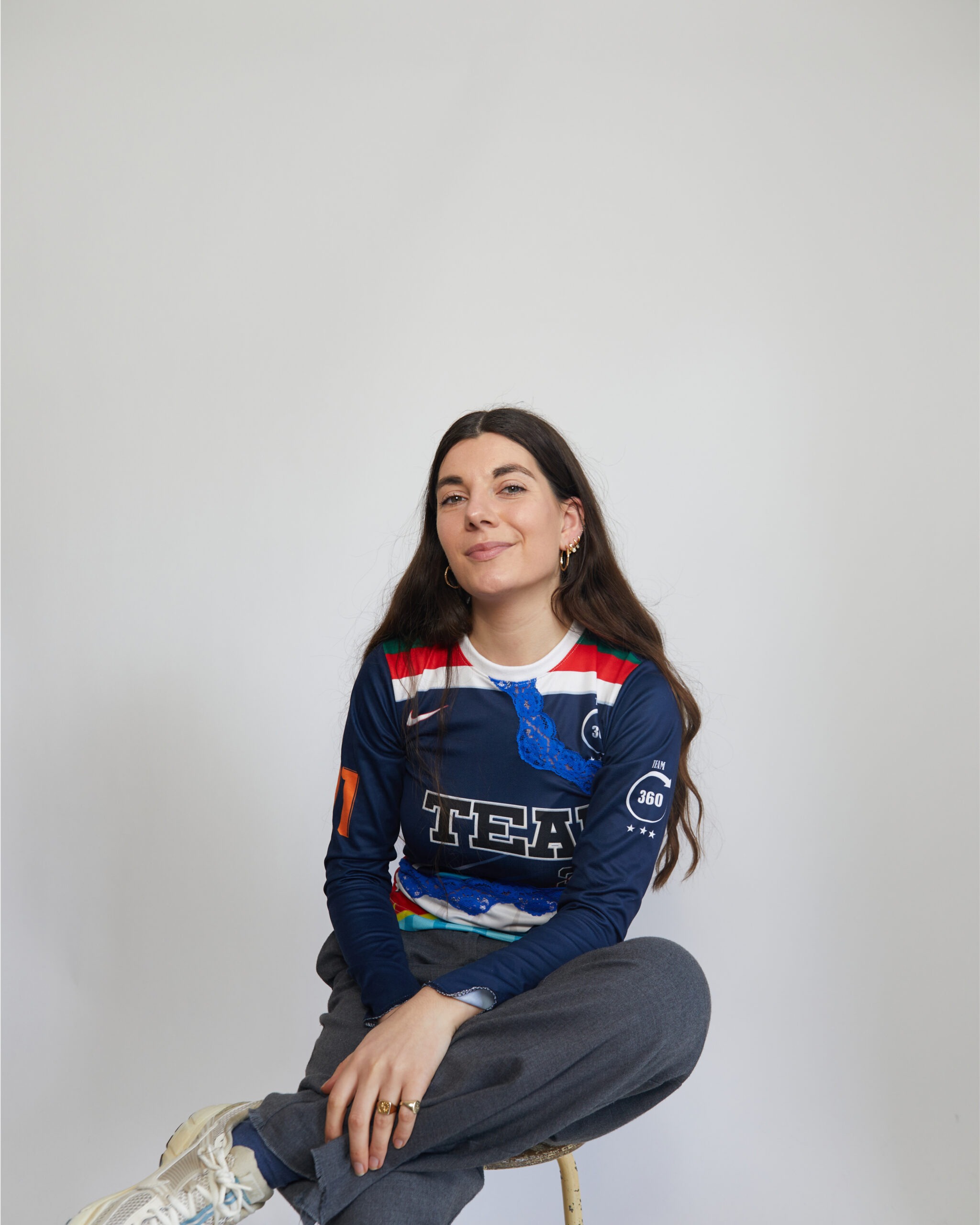
I wish I knew this was the place I would have the most creative fun and be the most creatively free. Life post uni is a lot harder whether you’re trying to find a job or work as a freelancer; the pressure of building a career and finances weigh heavy. At art school, this is your time to really embrace your creativity and play!! Yes you may feel pressure, but I wish I knew the pressure was SO much greater post uni and this was my time for enjoyment and exploration. Take all the opportunities offered: from learning new creative skills, to projects or internships and have all the fun while doing them.
After graduating, it took me a year of unpaid interning to get a job (while working in a pub in the evenings to pay my bills to live in London). After 2 years of working, I quit my job to centre my career around sustainability and started my upcycling brand. This meant going back to the pub for a few years to pay my bills while I built up my brand. The first 5 years after I graduated were really hard work and I WISH I hadn’t stressed out at uni as life was competitively so much easier then!
Everyone you’re at art school with are your future colleagues and industry connections so make friends with everyone! I’ve done loads of cool projects which came from people I’ve crossed paths with and years later down the line, they’ve thought of me for a project. I didn’t realise when I was at uni just how small creative industries were and how everyone you’re at art school with will go on to have really cool and interesting jobs – I don’t mean this in a icky ‘networking’ or social climbing way but in a genuine, friendly and being nice to everyone approach as you’ll be bumping into them for the rest of your career.
Lydia Bolton is a slow fashion designer and sustainability creator. Founding her namesake brand in 2019 which is centered on creatively tacking textile waste. Her work blends an educational and creative approach from designing one-off upcycled pieces, teaching workshops, content creation and partnerships with brands to highlight the value of reuse.
Jessica Dorman
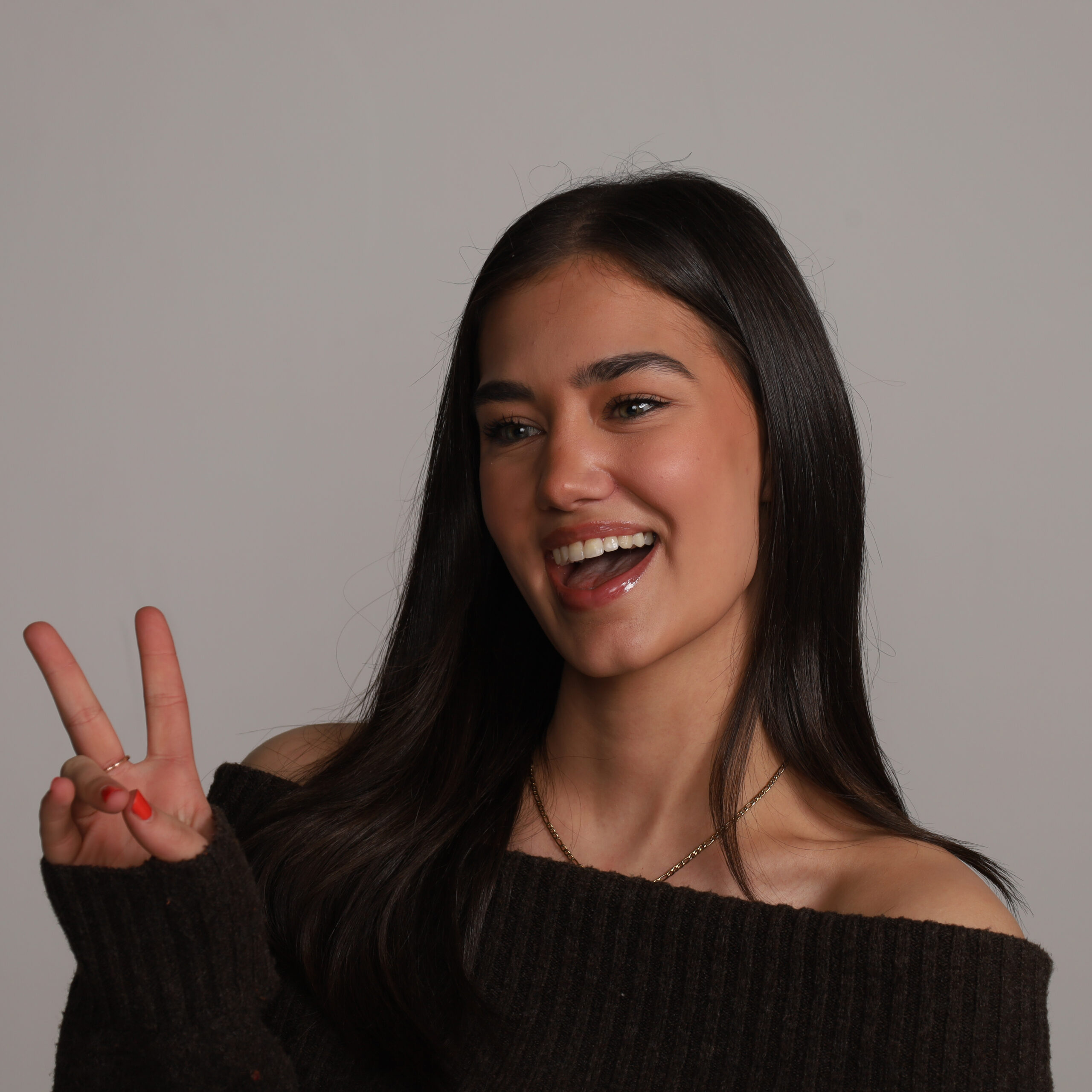
I wish I had known just how formative these years would be—not just creatively, but also personally.
Breaking this down into two parts: my creative degree taught me so much about the things I truly care about, which in turn helped me understand myself better. It sounds kind of obvious, but there’s a lot of filtering and figuring out that happens while studying – something I hadn’t fully anticipated.
On a personal level, I realised a lot as well. Going back to that idea of what I care about, I discovered that community was a big part of it for me. Having a “third space” somewhere outside of everything else became really important. It gave me a place to put my creative degree into practice, in ways that extended beyond a university brief.
Honestly, I had the best three years at uni. I’m grateful for the many lessons learned, the incredible people I’ve met, and the fun memories made. (And I suppose I wish I’d known just how much I would miss it, too)
Jess is a midlands-based creative, passionate about design and people.
You can find more from Jessica on her Instagram, LinkedIn and website.
Dominique Marshall
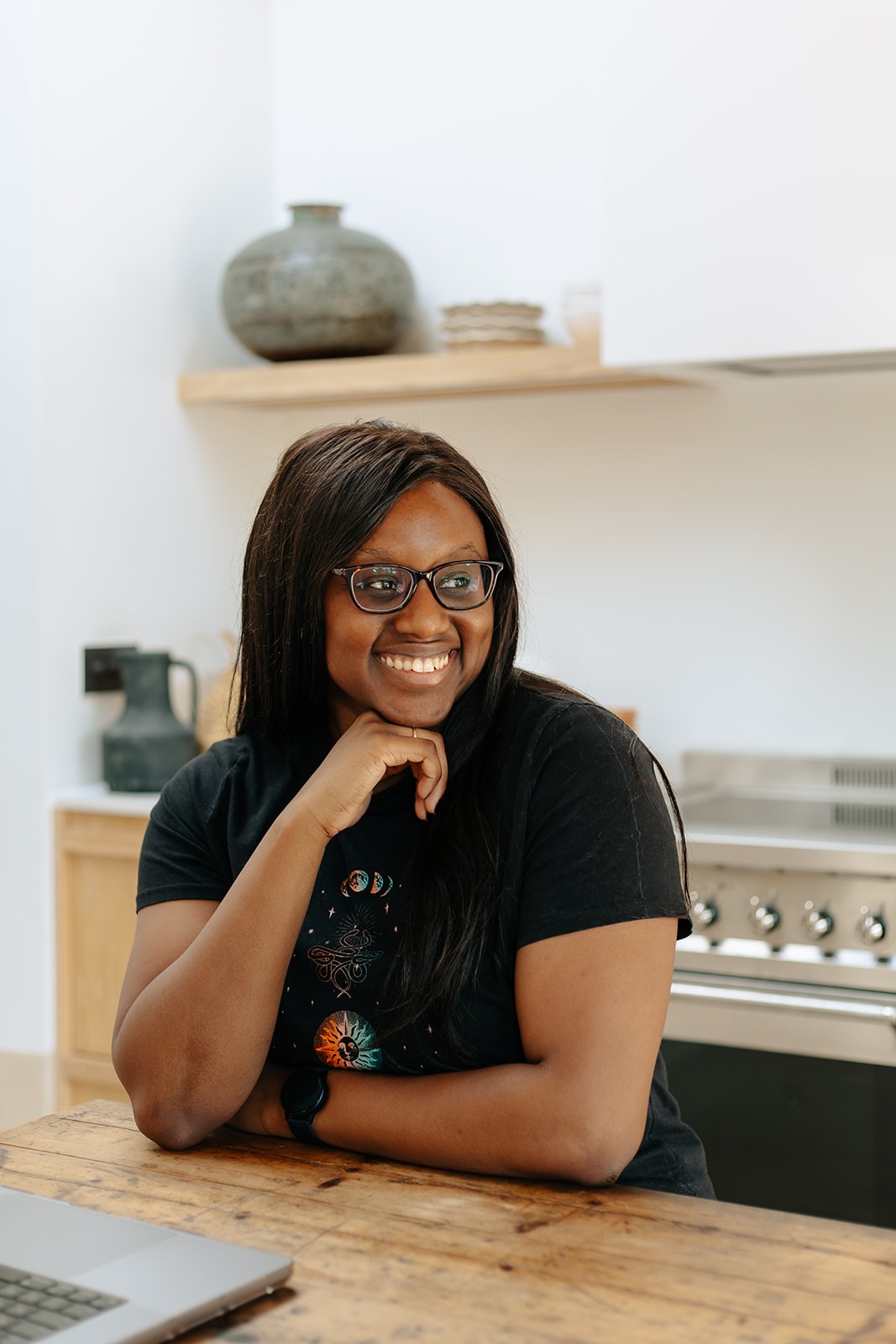
I studied Design for Visual Communication, and I wish I knew that the earlier you can get yourself an internship or into a part-time job within the industry, the better! While I enjoyed most of my degree like learning design principles, experimenting with different techniques and exploring my style, I found that I got the most out of it once I got a design job and was able to apply my skills to the real world, not just focus on impressing my tutors.
While it was all well and great having that container to learn about graphic design, it’s honestly nothing compared to creating for real-life situations (for example, my first design job was at a music magazine, and that design process was vastly different to creating for a uni deadline!)
I also feel like nowadays, having a degree doesn’t really get you much further like it might’ve done 10+ years ago. The industry moves so rapidly and it’s possible to learn so much online that by the time you finish your degree, you’ll have a solid foundation but most of your learnings might be out of date. You CAN be an incredible designer without getting a degree – you’re no less of a designer without one.
Dominique is the founder of Dmarzdesigns; a design studio where she alchemises websites for socially-conscious founders ready to express their values and vision confidently and unapologetically.
You can find more from Dominique on her website, Instagram, and LinkedIn.
Rachel Emma Wearing
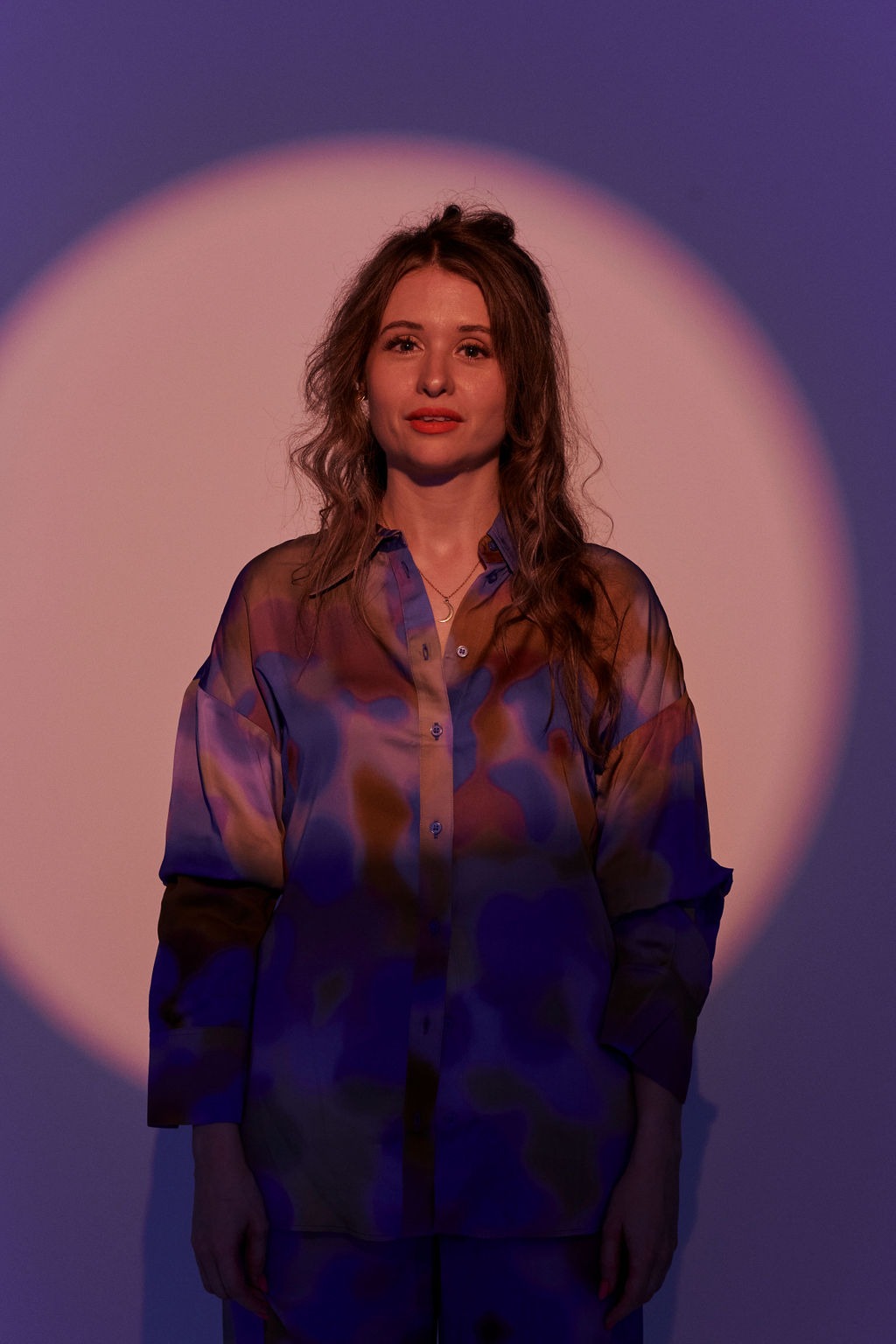
Who knew going to drama school to train in set design would lead me to running my own business as a creative launch and sales strategist? Definitely not me – and while I wouldn’t change that, because part of the fun of my wiggly career journey has been in the discovery, there are a few things I wish I knew before doing my set design degree:
I wish I knew how transferrable the skills I was learning would be. I genuinely think about and use concepts I learned at drama school a surprising amount in the business I run now, and I think if I’d have known that, I would have listened and learned with more of an open mind, instead of imagining I was destined for only one very specific career path. I also wish I knew how lucky I was to be doing a degree with so much contact time!
I wish I knew that it’s ok to pivot when things don’t feel aligned anymore, and that change doesn’t mean failure. All the experiences I had in my creative degree have set me up so well for the work I do now, and even though I don’t work in theatre or film anymore, I would still go back and do the exact same course – because it’s really shaped who I am and how I see things!
I wish I knew that I can’t do everything, and that’s ok. When I graduated, I had about 5 different dream careers that I tried to make happen at the same time, and of course I burnt out. I wish I could go back and tell myself that creativity needs spaciousness, otherwise all the creative things you’re doing suddenly feel like a trap.
Rachel is a Creative Launch + Sales Director, based in London. She helps personal brands and multi-passionate entrepreneurs launch like creators, so they can grow their audience and sell out their offers.
You can find more from Rachel on her website, Instagram, LinkedIn and Podcast, Launch Like a Creator.
Laura Mackenzie
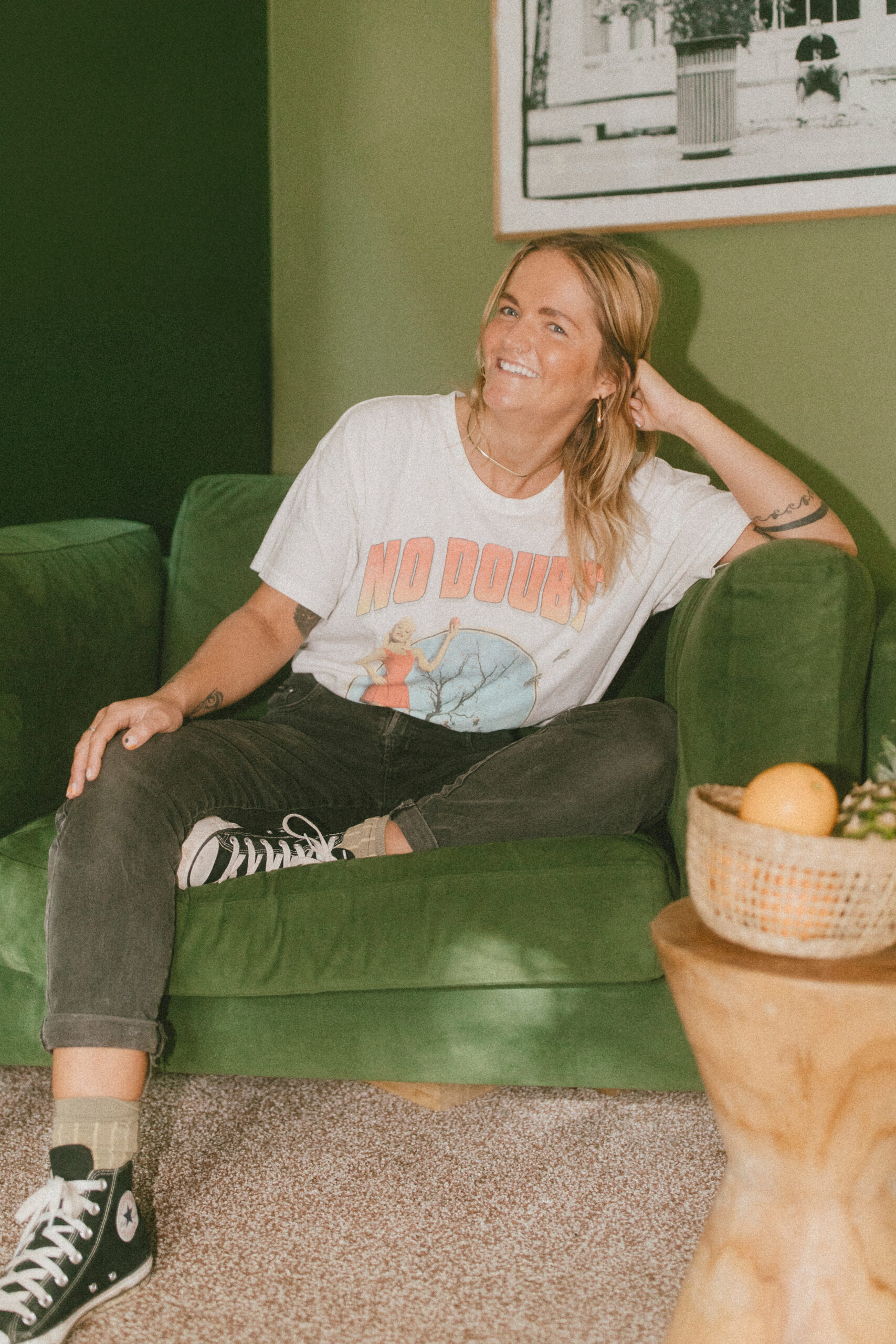
Studying fashion design at university was an incredible experience! I learned invaluable skills in making, sewing, and pattern cutting, and I wouldn’t trade it for anything. But looking back, I wish I’d known that getting a job in fashion (or any creative industry) has far more to do with work experience, connections, and putting yourself out there than getting the degree itself.
Uni gave me creative tools, but it didn’t teach me how to land a job, market myself, or navigate the business side of things. Most of what I know about marketing, planning, admin, and organisation, I had to teach myself. If I were 18 now and wanted to work in fashion, I’d choose a short course or diploma in my specific area of interest (whether that’s design, buying, or another niche – and also take time to learn about the fashion industry niches!) and pair it with as much work experience and networking as possible. I’d email people directly, go to events, join creative communities, build a portfolio, and share it widely.
I don’t regret my degree, but creative careers demand determination, self-starting, and the willingness to make yourself known, which in my opinion are skills no classroom can truly teach.
Laura Mackenzie is the Creative Director and founder of Kelp Collective, a creative business growth studio helping female founders and creatives streamline their businesses with support, systems and strategy
You can find more from Laura on her website, Instagram and LinkedIn.
Start Your Creative Journey
Join thousands of creatives discovering open calls, competitions, and career-changing opportunities. Set up your free profile and never miss a deadline again.
Đoàn Uyên Vy
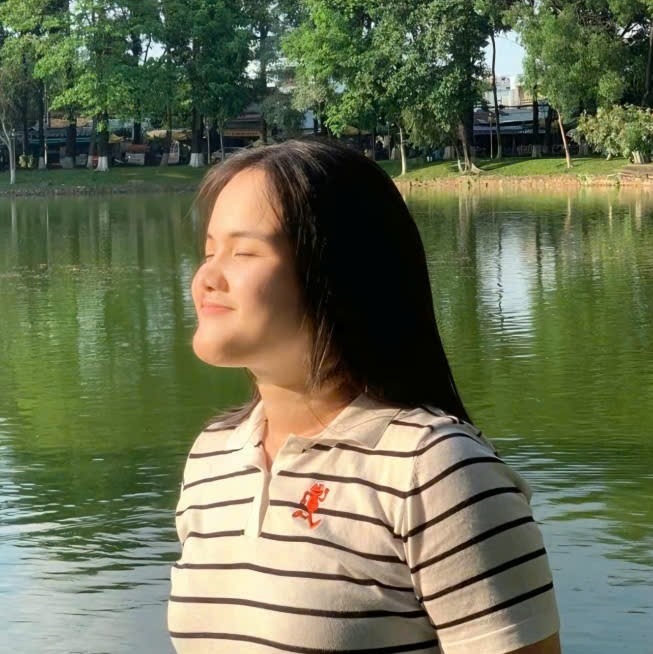
I’m currently studying Graphic Design – and oh wow, it’s been a ride full of late-night sketching, font drama, and layers that mysteriously disappear. If I could give my younger self one piece of advice before starting out, it’d be: Stop trying to make everything perfect. Just start. You’ll find your style by experimenting, not waiting.
I used to spend way too much time staring at a blank canvas, worrying if the idea was ‘good enough’. But honestly? Growth happens in the messy bits. In the strange concepts, the half-finished projects, the things that make you cringe later.
Also… don’t be afraid to make things that feel personal. Your weird is your magic.
Đoàn is a graphic design student currently learning and exploring through the world of shapes, colours, and storytelling.
Megan St Clair
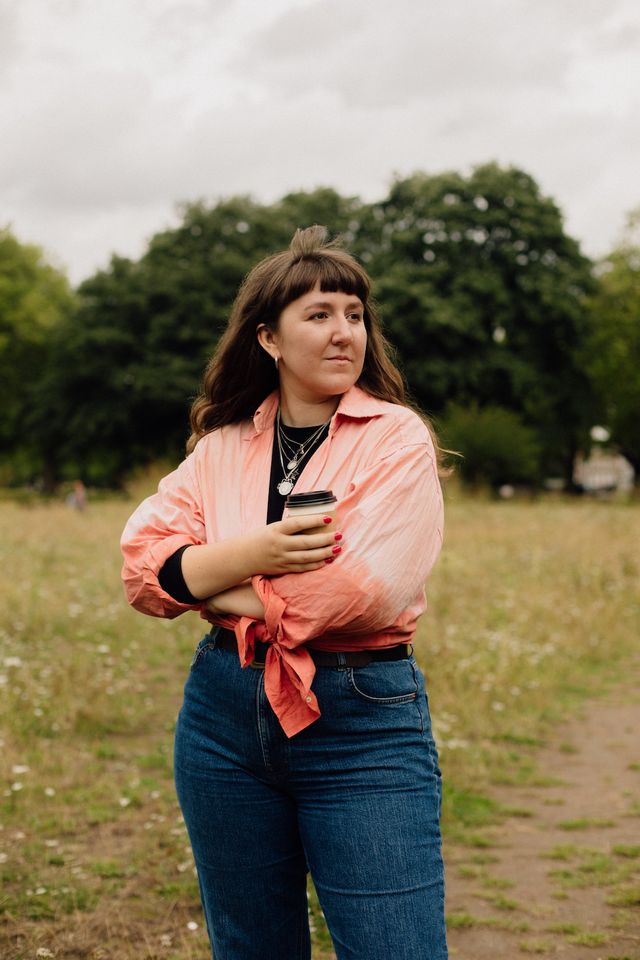
I wish I knew that starting before your ready in ‘working professionally’ will help you endlessly – start while you have guidance, support, free-er time and no ‘risk’ – also while you can lean on the ‘I’m still learning’ element of being a student. You’ll never feel ready, but if you’ve done something whilst you’re studying you’ll be more ready than you could be…
The network you have at university is invaluable – and I don’t just mean your course. The people you study at the same time as will grow with you, they’ll be out in the same industries, or sectors and may potentially end up being the person hiring you in the future. Be a good person, don’t burn bridges, build relationships and your ‘I know them’ pool – no need to be friends with everyone, but being friendly could help you in the future. Reputation in the creative industries is important, but actually I think in any industry.
For me specifically, I wish I’d known how little I knew, and how ok that was. That I wasn’t meant to walk in knowing how and what to do to be ’successful’ in my field. Being bold and asking questions, making it clear when something isn’t clear to lecturers will not just help you, it’ll help your peers too.
Also, how many transferable skills we were set to learn, from and alongside our course that were actually useful to be both a functional adult in society through life experience, but also as a professional. There’s so much more to the world of illustration than drawing pictures – the technicalities are something you’ll learn on your degree (if not, you’ve got 3 years to explore them with the wonders of technicians, the internet, and the library), but the industry understanding, terminology, the ways you can set yourself up for success with digital communications, the marketing of self that’s required regardless of agent… I could go on all day. In this industry you have to understand how people work as clients, customers, audiences, and why they respond to things – I think that’s crucial, so stay curious.
Megan is a fashion and lifestyle illustrator based in London, working on capturing joy through colour and texture filled illustrations. Megan creates vibrant visuals for brand storytelling, editorials and campaigns.
You can find more from Megan on her Instagram, LinkedIn, and website.
Roxane Lapa
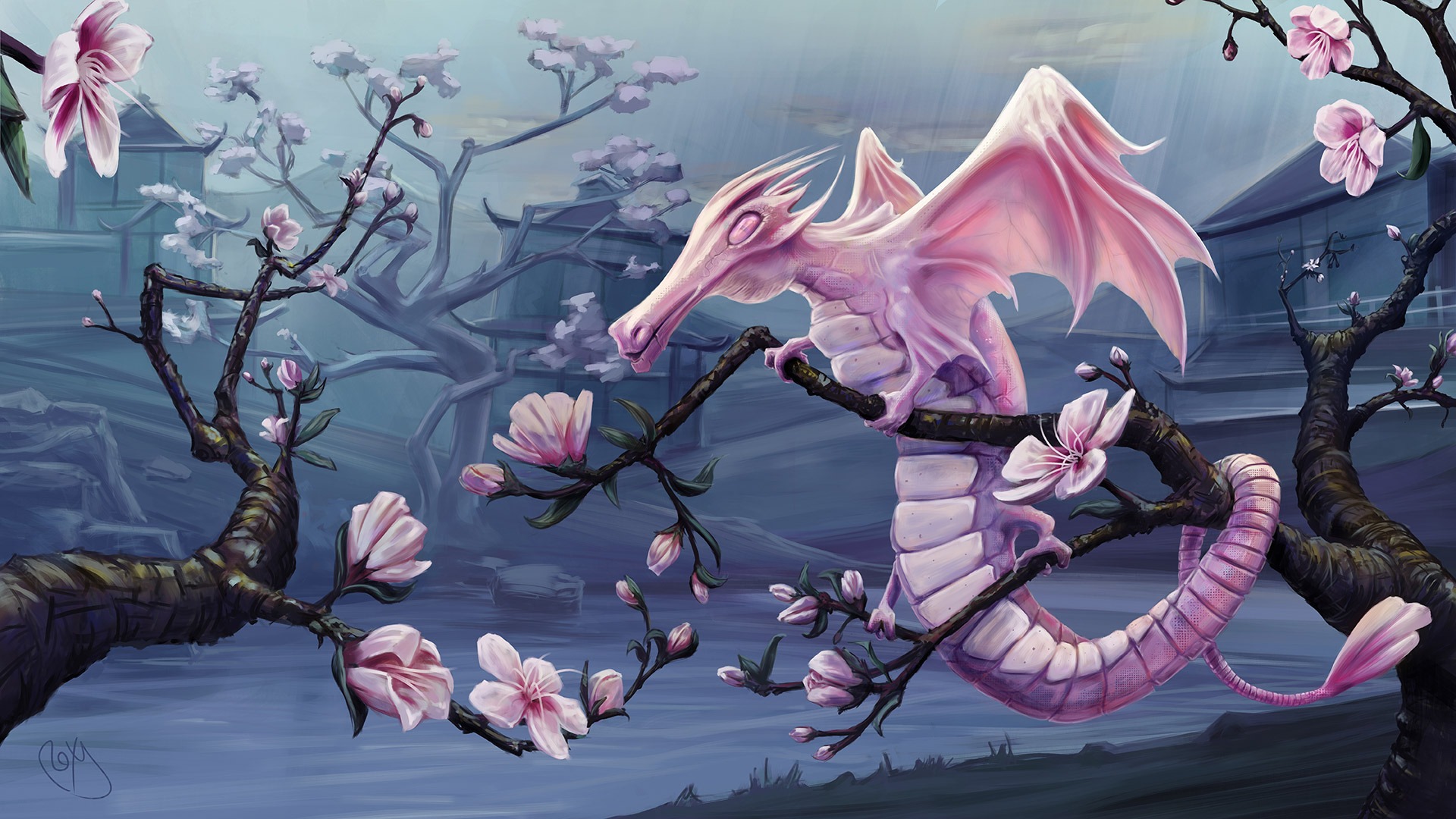
In almost 25 years in the industry, not one employer or client has ever been remotely interested in my qualifications. All they want to see is my portfolio, and rightly so. An art director can see straight away if you have a grasp on the fundamentals, and where your level is at. A client can see straight away if you are doing the type of art they enjoy.
This may seem like obvious advice but keep working on your portfolio and critically compare your work to those already working in the industry. Also cull the weaker pieces because you will be judged on your worst work – the employer or customer may be nervous that you will give them work on par with your earlier work, so only show your best.
Roxane Lapa is an SFF illustrator specialising in book cover art, though she’ll paint/draw most things. She’s also a qualified graphic designer with 23 years experience, a digital brushmaker, and YouTuber.
Lola
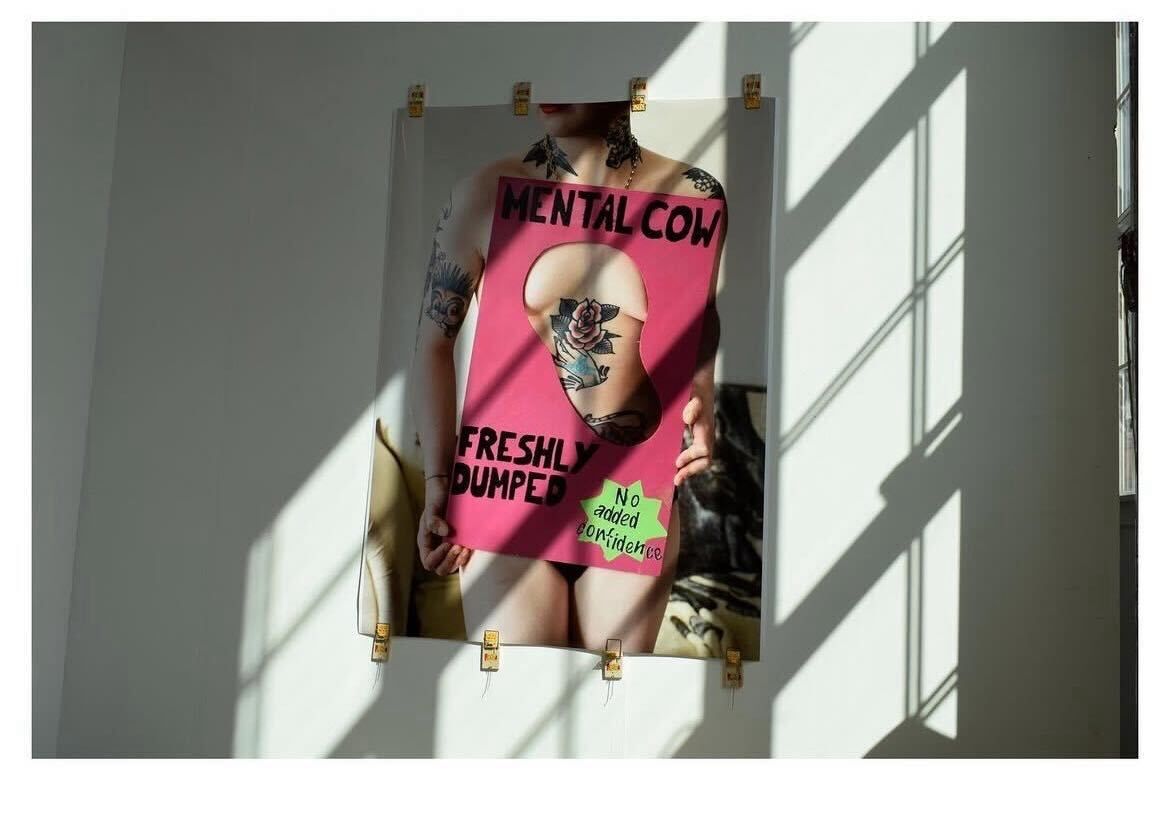
I graduated 2022 from Glasgow School of Art and half arsed every single thing I submitted including degree show – looking back I wish i done it better and slowed down and took more time on little things, but I just never and I’m not proud of anything I ever did there.
I feel like every time I think about art, I think of some shitty paper mashed thing badly painted or something in a space by itself to be pretentious cause a lot of that went on… but all in all art school has made me absolutely hate art. I actually think things I did to procrastinate from being there were/are far more valuable than what I submitted.
Lola is a creative and performer, with a focus on burlesque.
Amy Jackson
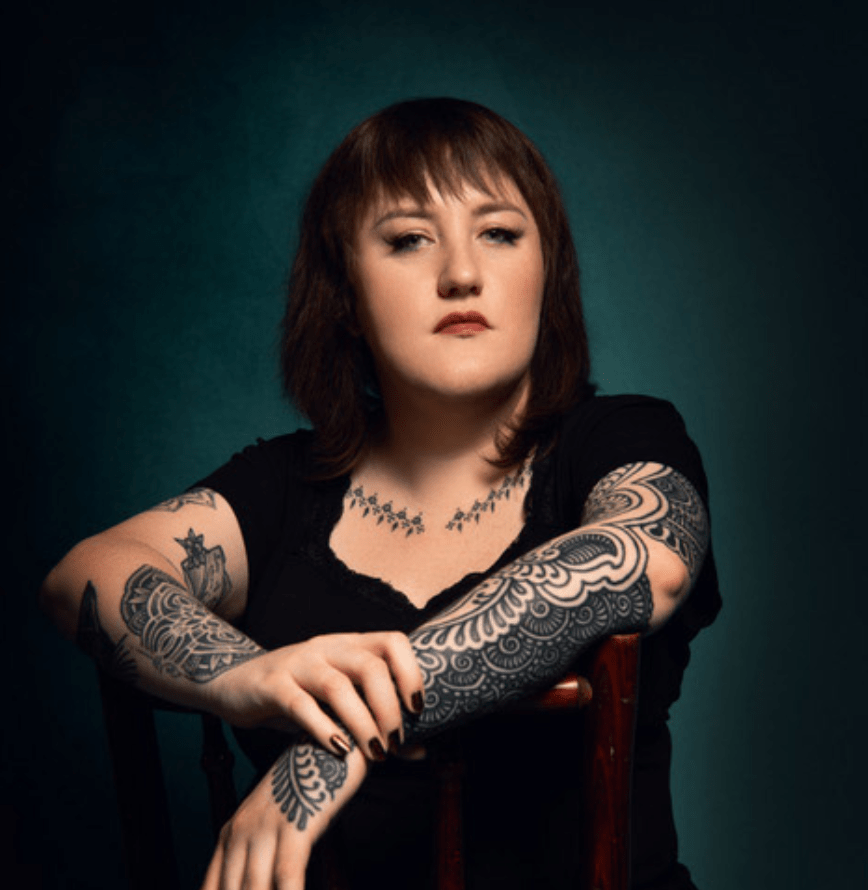
I’d tell younger me that you don’t have to hide the parts of yourself that feel too different or too much. One day, those exact things will become your strength. Your softness, your silence – they’re not things to fix, they’re things to honour. Keep creating, even when it feels pointless. You’re building something that will one day help people feel less alone (including you.)
I wish I’d known that success doesn’t have to look like constant hustle or overnight growth. In the beginning, I thought I had to do everything perfectly and match the pace of bigger brands or neurotypical creators to be taken seriously. I didn’t realise that building a business, especially as a neurodivergent, chronically ill artist could (and should) follow a different, more sustainable rhythm.
I also wish I’d known that connection is more powerful than perfection. The more I shared my story, my values, and the reality behind my work, the more people related to it. I thought I had to hide the messy parts, but they became my strongest foundation.
One of my biggest challenges has been building and sustaining my business while navigating neurodivergence, chronic health issues, and most recently, personal grief following the loss of two close family members and a beloved pet. These experiences deeply affected me both emotionally and creatively, but also became a turning point in how I connect with others through my art.
I overcame these obstacles by turning my challenges into creative fuel. I’ve built a community through storytelling, creating art that reflects lived experience, vulnerability, and social issues. My business has become both a livelihood and a lifeline – growing steadily through genuine connection, resilience, and an unwavering commitment to making art that matters.
Amy Jackson is a Welsh illustrator and neurodivergent artist whose work blends activism with humour in a dotwork style. Through prints, stickers, and personal commissions, she creates art that’s bold and rooted in lived experience.
You can find more from Amy on her website, Instagram and Facebook.
Want us to write more content like this? Give it a like
Share
Authors
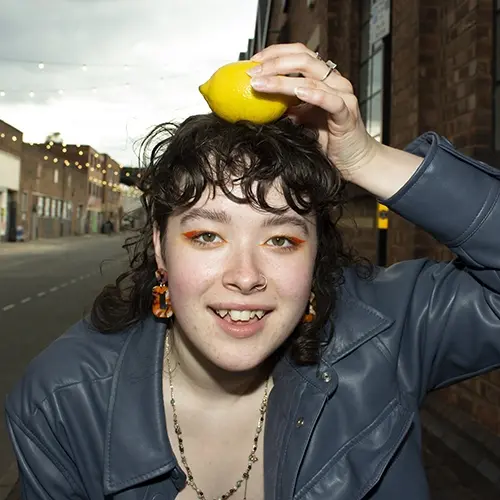
Bethan Jayne Goddard
